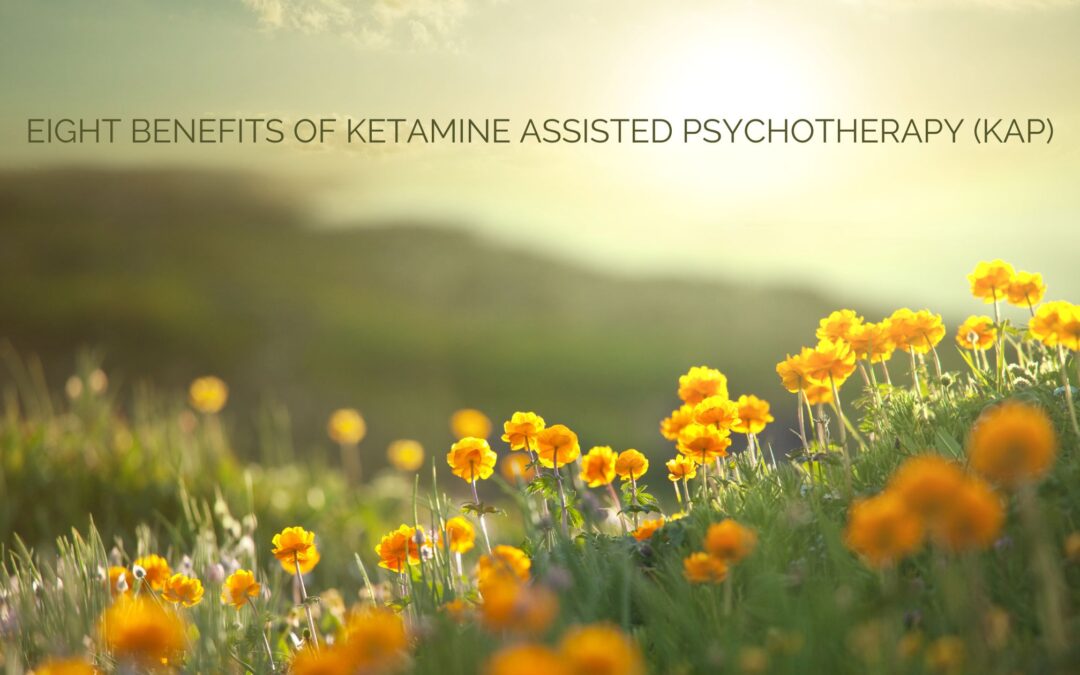At The Catalyst Center, we rely heavily on evidence-based treatments and proper training when doing our therapeutic work and only offer legal and ethical services. In an effort to utilize research-backed, cutting-edge approaches, several clinicians from our staff completed a year-long training to become Certified Psychedelic Assisted Therapy Providers. There is convincing data that shows clients experience multiple mental health benefits from the appropriate use of psychedelic medicine in combination with therapy support. Ketamine Assisted Psychotherapy (KAP) is a form of psychedelic-assisted psychotherapy and is one of the newest offerings from The Catalyst Center. Our KAP program is built on evidence-based approaches and is helping many clients move forward productively in their therapeutic work. Here are eight benefits clients might experience from KAP:
- Powerful Antidepressant Effects – Strong evidence shows that KAP is highly effective at treating various forms of depression including Treatment Resistant Depression (tried two or more medications without success). Data indicates that approximately 70% of clients have a positive response to the treatment, which is higher than most existing treatment approaches.
- Increased Openness – Clients often notice feeling much more open after KAP. This can manifest as openness to new experiences, new opportunities, or new ways of participating in their relationships.
- Enhanced Cognitive Flexibility – Clients report that they feel much more flexible in their views, perspectives, and approaches to their lives. Whereas mental health problems like anxiety and depression involve a lot of rigid, inflexible thinking, KAP can help reduce such rigidity and replace it with a more flexible way of viewing oneself and others.
Increased Connection with Self and Others – KAP can help clients feel a deeper sense of connection with themselves, other relationships they have, or even the broader universe as a whole. This can lead to better, more vibrant interactions as well as an openness to a relational connection that brings healthy, healing elements to one’s life.
- Effective Trauma Processing – Clients find that they are able to process trauma while undergoing KAP experiences actively. Ketamine can help bring a profound experience of viewing trauma through a unique lens, navigating associated emotions, and releasing traumatic material from the brain and body. Trauma processing happens best when ketamine is combined with therapeutic support to help clients unpack, process, and heal from the trauma they’ve been carrying.
- Deep Emotional Reset/Cleanse – KAP helps facilitate productive emotional processing, which can feel like an emotional “cleansing” or “reset switch” of sorts. Clients often find that they experience more balance in their emotions, leading to increased feelings of peace and emotional regulation.
- Opportunities for Spiritual Growth – Some individuals report having mystical experiences while under the effects of ketamine including feeling connected to something universal or larger than themselves. Clients can have many spiritual or existential layers to their KAP experience, and there are opportunities for deeper spiritual connection and exploration when these are viewed with a curious openness
- Sustainable Change – KAP can often lead to more sustainable changes over time than many conventional treatment approaches. Clients sometimes find that they view themselves, others, and the world around them in a much healthier way after undergoing KAP. These new insights are frequently helpful in preserving and furthering positive changes.

Photo credits:
Photo by Guilherme Stecanella on Unsplash


 Increased Connection with Self and Others
Increased Connection with Self and Others

